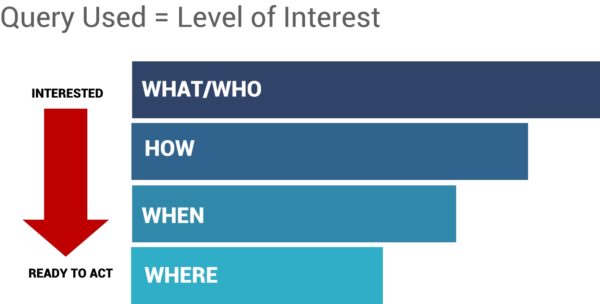
It is estimated that in 2020, half of all searches in the U.S. will by done by voice search and 30% of web-browsing will be done without a screen.
Currently 20% of all Google searches are voice searches. Voice search is also more mobile and locally focused. If you are only optimizing your website for views you are missing a segment of searches that could be costing you business.
In addition to website SEO and Social Media optimization you will now need to optimize your business for voice-activated searches for assistants like Alexa, Cortana, Siri, and Google Home.
Voice-Activated Search
Voice requests are longer than text queries. People typically make voice inquiries as if they are speaking with or to someone. Voice searches are also longer and use more words and are “characterized by words like who, how, what, where, why, and when.”
Word choice can also provide more information about the user’s intent. If the search is inquiring about the difference between a gas car and an electric car, they are probably just researching information. However, if they ask “How much does a Tesla cost” or “Where is the nearest Volkswagen dealer” they are likely closer to taking action.
The question phrases used also indicates the degree of the user’s intent.
Optimize for Search
1. Optimize for Speed
People using voice search are usually mobile-based and not necessarily connected to Wi-Fi. They want search results and websites that load fast and offer immediate results. Check your websites page load speeds and make improvements so they load as quickly as possible.
2. Focus on Content
Short-form content is effective for audio search. Provide content on the website or in the blog in an efficient format. A rule of thumb is the content on your site should qualify for Google’s feature snippets, also known as position zero.
Long-form content is also valuable, as most long-form content provides more outbound links, citations.
Social Updates are important when sharing short and long-form content, this amplifies it’s reach, which in turn indicates to Google that the content is more valuable to searchers.
Audio versions of text-based content is useful for return results. Search engines don’t “crawl” audio files, but providing audio allows users to quickly access information, which may be more desirable results for the searcher.
Create FAQ pages, this is a great addition to optimize for voice search. Use questions that people may ask (conversationally) about your products/services and provide straightforward answers.
Set-up content by using short sentences, breaking up chunks of text with white space or images, and use quotes and citations.
3. Optimize for Mobile
It is likely you have already optimized your website and content for mobile already. Just make sure your website is designed responsively and make sure your content is displayed properly on all devices in all resolutions.
Get Voice Ready
Just when you have nailed the SEO and Social Media marketing to improve your search rank along comes voice-activated searches. As voice-activated assistants become more popular and are improved in their capabilities the more you will need to improve your website and marketing efforts to keep up and still be found. Get started now and stay ahead of the curve!
